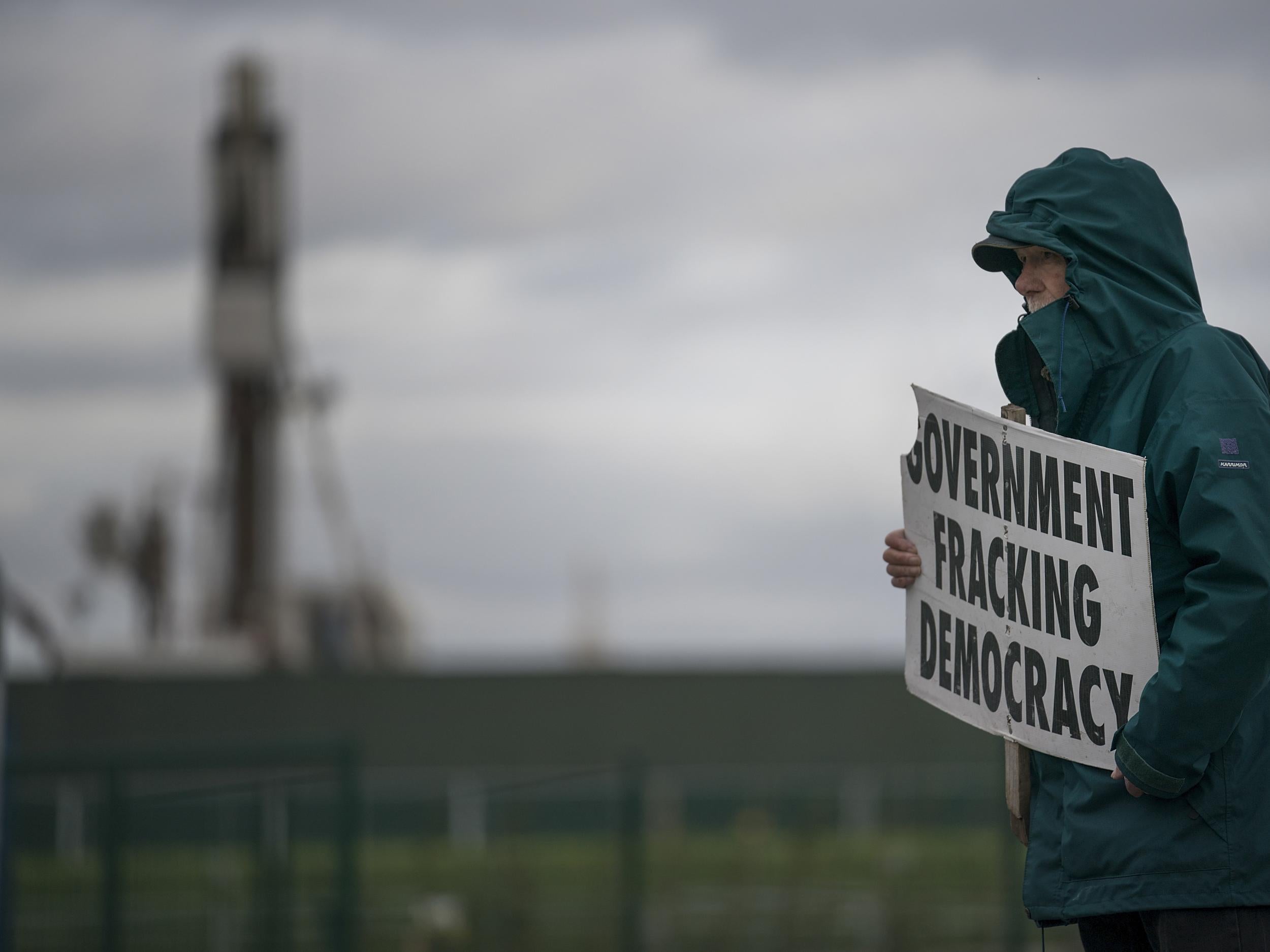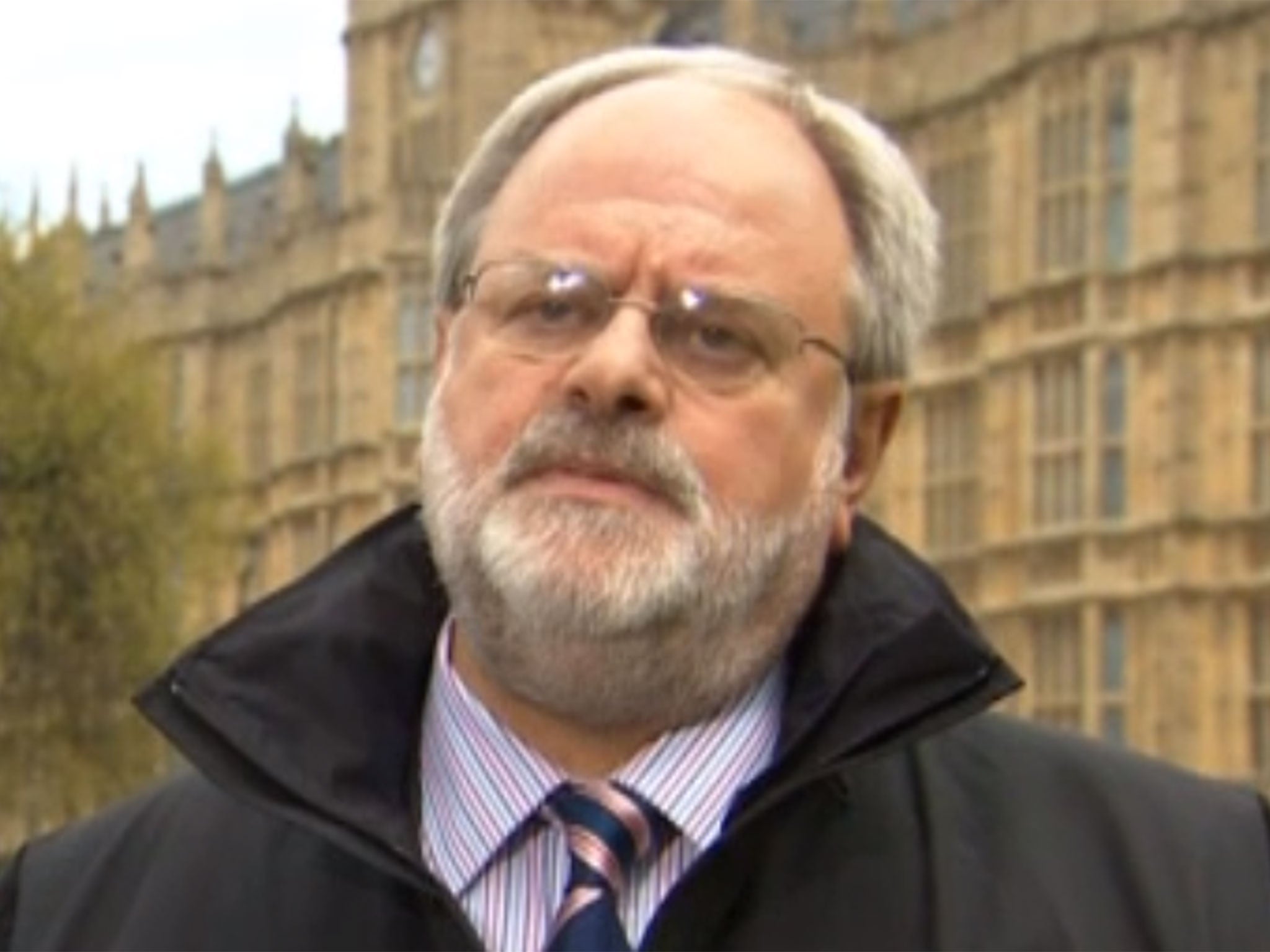Fracking could cause earthquakes across huge swathes of UK, warns former Downing Street adviser and seismologist
‘Ministers must take heed and listen to the growing weight of evidence on fracking and, at the bare minimum, implement a moratorium on fracking in coal mining areas and review fracking across the UK’

Your support helps us to tell the story
From reproductive rights to climate change to Big Tech, The Independent is on the ground when the story is developing. Whether it's investigating the financials of Elon Musk's pro-Trump PAC or producing our latest documentary, 'The A Word', which shines a light on the American women fighting for reproductive rights, we know how important it is to parse out the facts from the messaging.
At such a critical moment in US history, we need reporters on the ground. Your donation allows us to keep sending journalists to speak to both sides of the story.
The Independent is trusted by Americans across the entire political spectrum. And unlike many other quality news outlets, we choose not to lock Americans out of our reporting and analysis with paywalls. We believe quality journalism should be available to everyone, paid for by those who can afford it.
Your support makes all the difference.Fracking on up to half the land the government has approved for shale gas extraction could trigger earthquakes, according to a leading seismologist.
Professor Peter Styles, a former Downing Street adviser, said extracting gas from former coal mining areas “dramatically enhances” the risk of seismic activity, prompting calls for an immediate fracking moratorium.
A new report authored by Prof Styles outlining the threat comes the week after a government plan to accelerate fracking developments by fast-tracking private companies’ planning applications.
The government announcement reiterated its support for fracking and described progress in the industry as “disappointingly slow”.
Instead of making the process faster, Prof Styles has called for more rigorous checks to identify potential dangers in coalfields.
“It would be prudent of the government to reduce the estimates of exploitable onshore frackable gas by half,” he said.
“We are risking our energy security if we proceed without assessing all the data.”
Former coalfields are already at risk of earthquakes, but this risk is likely to be exacerbated by fracking.

Fracking has already been linked to seismic activity in Lancashire, after Prof Styles warned of the dangers of extracting gas at Cuadrilla’s Preese Hall site.
In 2011, the British Geological Survey recorded a tremor at that site with a 2.4 magnitude followed by another with a 3.2 magnitude. The events led to ban on all operations in the area.
The government has indicated that any future fracking development will be environmentally friendly.
“If you’re going to have development without looking at the evidence Peter Styles is talking about… it’s just irresponsible,” Steve Mason at campaign group Frack Free United told The Independent.
“If they’re ignoring this report they are ignoring the evidence.”
To reduce the risks, Prof Styles has called on James Brokenshire, communities and local government secretary, to immediately implement new best-practice measures.
These include the introduction of buffer zones between fracking sites and old mines or significant natural fractures, as well as the requirement that businesses make use of detailed data before proceeding.
Prof Styles also questioned the industry’s technical capability to identify the faults or fractures that are likely to cause earthquakes.
Existing data shows that potentially dangerous faults capable of producing seismic activity are found throughout former coal mining areas, but Prof Styles’s report suggested mining data has been overlooked or ignored
“Unfortunately the physics of it means you cannot see those faults with the [survey] waves that you put into the earth,” he said.
“To date it does not appear that any proper industry or government due diligence has taken place with regards to faultlines mapped.”
In response to the new findings, the Liberal Democrat spokesperson on fracking, Baroness Featherstone, said: “This report asks some serious questions of the government and the fracking industry.
“Ministers must take heed and listen to the growing weight of evidence on fracking and, at the bare minimum, implement a moratorium on fracking in coal mining areas and review fracking across the UK.”
Labour MP Sir Kevin Barron said: “Professor Styles’s report makes for worrying reading and I hope the government take action to implement his recommendations immediately. I believe fracking in coal mining areas is a disaster waiting to happen.
“They should be listening to Professor Styles and not trying to relax the planning rules as they did last week.”
Concern about associated risks has already led to fracking being banned in Scotland, Wales and Northern Ireland.
Prof Styles’ report concluded that an extensive investigation is required using historic mining data to determine the full extent of the risks posed by fracking.
According to his findings, it is probable that the majority of current fracking licences for the north of England would be useless.
A Department for Business, Energy and Industrial Strategy spokesperson said: “The UK has over 50 years of experience in regulating the onshore oil and gas industry, meaning the sector is governed by one of the safest, most environmentally sound and well-regulated systems in the world.
“These strong controls and laws will ensure shale gas can be explored safely and sustainably.”
Join our commenting forum
Join thought-provoking conversations, follow other Independent readers and see their replies
Comments